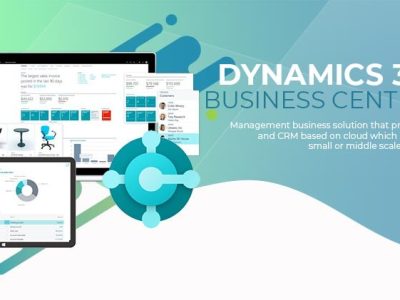Introduction
The evolution of artificial intelligence (AI) has been one of the most remarkable technological advancements in recent years. One of the most transformative aspects of AI is generative AI. It is reshaping industries, providing solutions to complex challenges, and driving innovations across sectors like healthcare, finance, manufacturing, and retail. This blog delves into how generative AI is revolutionizing industries and highlights the critical role AI plays within Microsoft Dynamics 365 (D365), empowering organizations to achieve operational excellence and business growth.
1. What is Generative AI? 🤖
Generative AI refers to a subset of artificial intelligence technologies designed to generate new content, ideas, or solutions based on existing data. Unlike traditional AI models, which analyze and respond to input, generative AI can create new, previously unseen data, such as text, images, audio, or even video.
Key areas where generative AI excels:
- Natural Language Processing (NLP): Enables machines to generate and understand human language.
- Machine Learning (ML): Learns patterns in large datasets to generate predictions or suggestions.
- Generative Adversarial Networks (GANs): A form of AI that generates realistic content by learning from real data.
2. The Impact of Generative AI Across Industries 🌐
A. Healthcare 🏥
Generative AI is transforming the healthcare industry by aiding in drug discovery, improving diagnostics, and enabling personalized medicine. AI-powered systems can analyze massive datasets of medical records to generate new insights, helping healthcare professionals make better decisions.
- AI-Powered Diagnostics: Generative AI models can analyze images such as X-rays and MRIs, providing doctors with accurate diagnostics.
- Drug Discovery: By generating new chemical structures, AI speeds up the process of identifying potential drugs.
B. Finance 💰
Generative AI is reshaping the financial industry by enhancing risk management, fraud detection, and investment strategies.
- Automated Risk Analysis: AI models generate insights from large sets of financial data to predict and mitigate risks.
- Fraud Detection: Generative AI systems can identify unusual patterns and flag potentially fraudulent activities.
C. Manufacturing 🏭
Generative AI is streamlining manufacturing processes by optimizing supply chains, automating design processes, and improving predictive maintenance.
- AI-Driven Design: Using generative design algorithms, companies can generate optimized product designs based on a set of constraints.
- Predictive Maintenance: AI models predict equipment failures, reducing downtime and ensuring smoother operations.
D. Retail 🛍️
Generative AI is also playing a pivotal role in transforming the retail sector. From personalized shopping experiences to inventory management, AI is optimizing several aspects of retail.
- Personalized Shopping: AI systems generate personalized product recommendations based on customer preferences and browsing behavior.
- Optimized Inventory: AI models forecast demand and generate optimal stock levels, reducing overstocking or stockouts.
3. The Role of AI in Microsoft Dynamics 365 📊
Microsoft Dynamics 365 (D365) is a cloud-based suite of enterprise resource planning (ERP) and customer relationship management (CRM) tools that integrates AI to enhance business processes. The AI capabilities within D365 are designed to help organizations harness the power of data, optimize workflows, and improve decision-making.
A. AI-Driven Customer Insights 📈
One of the key AI features within D365 is its ability to generate deep customer insights by analyzing data from multiple touchpoints, such as social media, emails, and sales interactions.
- 360-Degree View of Customers: AI helps businesses gain a comprehensive understanding of customer behavior and preferences, enabling personalized marketing and customer service.
- Predictive Customer Insights: By analyzing historical data, AI models predict customer needs, helping organizations take proactive measures to improve customer satisfaction.
B. Intelligent Automation in Operations ⚙️
AI in D365 automates routine tasks, freeing up employees to focus on higher-value activities. From finance and supply chain management to human resources, D365 AI helps streamline operations.
- Automated Financial Processes: AI can generate financial reports, process invoices, and forecast budgets, reducing manual effort and human error.
- Supply Chain Optimization: AI models generate insights to help businesses manage inventory, forecast demand, and reduce supply chain disruptions.
C. AI in Sales and Marketing 📊
Generative AI is revolutionizing sales and marketing strategies by helping businesses create highly targeted campaigns and content that resonate with their audiences.
- AI-Generated Content: D365’s AI tools can create customized marketing materials, including emails and social media posts, tailored to specific customer segments.
- Lead Scoring and Opportunity Identification: AI models in D365 can predict the likelihood of a lead converting into a customer, helping sales teams focus on high-potential opportunities.
D. Customer Service Chatbots and Virtual Agents 🤖
Generative AI enables virtual agents to handle customer service requests, providing fast and efficient solutions.
- 24/7 Customer Support: AI chatbots powered by D365 can offer instant assistance, answering frequently asked questions and resolving issues without human intervention.
- Enhanced User Experience: Virtual agents provide personalized assistance, guiding customers through product recommendations or troubleshooting.
E. Enhanced Decision-Making 💡
AI in D365 can analyze vast amounts of data, providing actionable insights that aid in decision-making.
- Predictive Analytics: AI models forecast future trends based on historical data, enabling businesses to make informed strategic decisions.
- Business Intelligence: D365’s Power BI integration helps visualize data insights, empowering leaders with the information needed for data-driven decision-making.
4. The Future of Generative AI 🚀
A. Continuous Innovation in AI Algorithms 🔍
As AI algorithms continue to evolve, generative AI models will become even more powerful, providing businesses with even greater tools for innovation. From improving design processes to enhancing customer interactions, the potential applications of generative AI are endless.
- Automating Creativity: Expect AI to generate not only product designs and customer communications but also creative content like advertisements and video.
- AI-Driven Innovation: Generative AI will play a key role in creating new business models, products, and services that were previously unimaginable.
B. Ethical Considerations and Responsible AI ⚖️
With the rapid rise of generative AI, ethical considerations are more important than ever. Businesses must ensure that AI systems are transparent, unbiased, and respect privacy.
- Ethical AI Frameworks: Organizations must implement ethical guidelines to ensure AI models are fair and responsible in their use.
- Data Privacy: AI models must comply with data privacy regulations to ensure customer data is protected and used responsibly.
Conclusion
Generative AI is undeniably transforming industries by automating processes, optimizing operations, and fostering innovation. Its role within Microsoft Dynamics 365 further enhances its impact, offering organizations powerful AI-driven solutions for everything from customer insights to supply chain optimization.
As businesses continue to explore the potential of generative AI, it’s clear that its role will only grow stronger. Companies that embrace this technology will be better positioned to adapt, thrive, and succeed in an increasingly competitive and dynamic business landscape.







